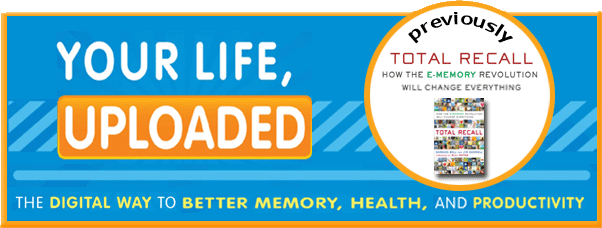Why are you recording everything?—has been a question from the start. It depends who’s asking and when they asked. In the beginning, when I wasn’t sure why, the technology answer was -- “because we can”. Furthermore, in a decade, disks will be a terabyte and this will enable the storage of entire lifetime of everything we can hear and see, at least at a low resolution.
The actual project seed was Raj Reddy’s call from CMU to use the books I’d written as guinea pigs for the Million Book Project. As we describe in chapter 2 this triggered scanning articles I’d written before the professional organizations decided to digitize them. Shortly after starting this decade long project, my boss and mentor, Jim Gray, observed “There are a lot of interesting questions about recording everything. You’re in research. You should try to answer some of them.” In 2009 there are many answers to “why?” that are intertwined with a belief that having everything in your life in cyberspace is the inevitable, constant, quest of personal computing evolution. So everyone will ultimatly have their lives in cyberspace.
Going paperless by never storing or transmitting paper has been a long-term goal. Encoding desk and office chachkas, collectables, ephemera, and memorabilia gets rid of most of the rest of office clutter. “Less” equates to a “green technology”. Just having life’s working bits including pesky bills, wills, medical records, and even manuals accessible anywhere all the time, means that I can live and work anywhere.
When the screen saver started showing pictures from its e-memory then ambience and bio-memory refresh rationalize the effort that ultimately becomes part of one’s immortality.
Thad Starner, who has consistently transcribed his conversations in real time using a Twiddler keyboard the longest agrees—saving everything in e-memory to aid our bio-memories is the most important reason to capture everything. The idea of a permanent, infallible e-memory as the most important "why" escaped Thad, Jim, and me for a long time because we have become so dependent on our e-memories.
The confidence and freedom of having help to remember is quite wonderful. Indeed we've come to think of the partnership: bio-memory has the meta-data or in essence, a URL, to our e-memory where the records, facts, and truths are held.
 Monday, June 29, 2009 at 11:42AM
Monday, June 29, 2009 at 11:42AM  amazon,
amazon,  backup,
backup,  lifestream in
lifestream in  Challenges,
Challenges,  Getting Started
Getting Started 